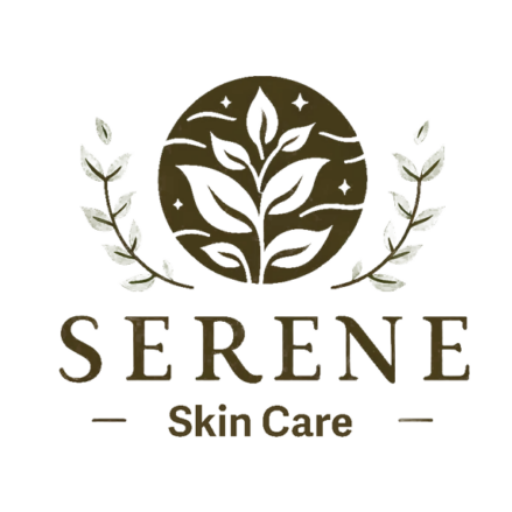In the fascinating realm of skincare, there is a hidden world that holds the key to healthy, radiant skin: the skin microbiome. This complex ecosystem of microorganisms plays a vital role in maintaining the skin’s health and appearance. In recent years, the concept of probiotic skincare has emerged, harnessing the power of beneficial bacteria to enhance the skin’s natural defense mechanisms. By delving into the intricate web of the skin microbiome and the promising benefits of probiotic skincare, a whole new level of understanding and potential for vibrant and glowing skin awaits.
What is Skin Microbiome?
Definition of Skin Microbiome
The skin microbiome refers to the vast community of microorganisms that reside on the surface of the skin. These microorganisms include bacteria, fungi, viruses, and other microbial species. They form a complex ecosystem that plays a crucial role in maintaining the health and balance of the skin.
Composition of Skin Microbiome
The skin microbiome is a diverse community, with each individual having a unique composition. The most abundant microorganisms found on the skin are bacteria, particularly those from the phyla Actinobacteria, Firmicutes, and Proteobacteria. Fungi, such as Malassezia species, are also common residents of the skin microbiome. Additionally, viruses, such as bacteriophages, can be present on the skin.
Importance of Skin Microbiome
The skin microbiome serves several important functions that contribute to the overall health of the skin. One of its primary roles is to provide protection against harmful pathogens by competing for resources and limiting their growth. The microorganisms of the skin microbiome also help maintain the skin’s pH balance, regulate the immune system, and support the skin’s barrier function. An imbalance in the skin microbiome, known as dysbiosis, can lead to various skin conditions, including acne, eczema, and dermatitis.
Understanding Probiotics
Definition of Probiotics
Probiotics are live microorganisms that, when administered in adequate amounts, confer health benefits to the host. These beneficial bacteria and yeasts are similar to the microorganisms found in the natural microbiome of the human body. Probiotics can be ingested orally or applied topically to the skin.
How Probiotics Work
Probiotics work by colonizing the skin and promoting the growth of beneficial microorganisms. They produce antimicrobial substances that inhibit the proliferation of harmful bacteria and fungi. Probiotics also modulate the immune response in the skin, reducing inflammation and promoting skin healing. By restoring balance to the skin microbiome, probiotics help maintain healthy skin.
Types of Probiotics
There are various types of probiotics that can benefit the skin. Lactic acid bacteria, such as Lactobacillus and Bifidobacterium species, are commonly used in skincare products. In addition, certain strains of yeast, such as Saccharomyces cerevisiae, have been shown to have probiotic properties. Each type of probiotic may have different mechanisms and benefits for the skin.
The Connection Between Skin Microbiome and Probiotics
Effect of Probiotics on Skin Microbiome
Research has shown that the application of probiotics to the skin can have a positive impact on the skin microbiome. Probiotics help restore the natural balance of microorganisms on the skin, reducing the abundance of harmful bacteria and promoting the growth of beneficial ones. This can improve the overall health and resilience of the skin, leading to a smoother and clearer complexion.
Benefits of Probiotic Skincare
Probiotic skincare has gained popularity due to its numerous benefits. It is known to strengthen the skin’s barrier function, enhancing its ability to retain moisture and protect against environmental stressors. Probiotics also have anti-inflammatory properties, making them effective in soothing irritated and sensitive skin. Additionally, they can help regulate sebum production, making them beneficial for individuals with oily or acne-prone skin.
Probiotic Skincare Products
Types of Probiotic Skincare Products
Probiotic skincare products come in various forms, including cleansers, toners, serums, moisturizers, and masks. These products contain live probiotic microorganisms or their extracts, which are formulated to be compatible with the skin. Some products also contain prebiotics, which serve as food for the probiotics, promoting their growth and effectiveness.
How to Choose the Right Probiotic Skincare Products
When choosing probiotic skincare products, it is important to consider several factors. First, look for products that contain a sufficient concentration of live probiotic microorganisms. Check the product’s label for information on the specific strains of probiotics used and their proven benefits. Additionally, consider your skin type and any specific skin concerns you may have when selecting a probiotic skincare product.
Scientific Research on Skin Microbiome and Probiotic Skincare
Studies on the Effectiveness of Probiotic Skincare
Scientific studies have investigated the effectiveness of probiotic skincare in improving various skin conditions. Research has shown that probiotics can be beneficial in reducing acne lesions, improving skin hydration, and alleviating symptoms of eczema. These studies have provided evidence supporting the use of probiotic skincare products as a safe and effective approach to promote healthy skin.
Potential Future Applications
Ongoing research on the skin microbiome and probiotic skincare continues to uncover new potential applications. Scientists are exploring the use of probiotics in the prevention and treatment of other skin conditions, such as rosacea and psoriasis. Additionally, the development of personalized probiotic skincare tailored to an individual’s unique skin microbiome is an area of interest and holds promise for the future.
Prebiotics: The Partner of Probiotics
Definition of Prebiotics
Prebiotics are non-digestible compounds that serve as food for probiotic microorganisms. These substances, typically carbohydrates, are not broken down by human enzymes but can be fermented by beneficial bacteria and yeasts. Prebiotics help promote the growth and activity of probiotics, enhancing their beneficial effects on the skin microbiome.
Role of Prebiotics in Promoting Healthy Skin Microbiome
Prebiotics play a supportive role in maintaining a healthy skin microbiome. By providing nourishment to probiotic microorganisms, prebiotics help them thrive and establish a stronger presence on the skin. This can enhance the probiotics’ ability to compete with harmful bacteria and maintain a balanced and diverse microbiome, which is essential for healthy skin function.
Combining Prebiotics and Probiotics in Skincare
Many skincare products now combine prebiotics and probiotics to maximize their benefits. By including prebiotics in probiotic skincare formulations, manufacturers aim to create an ideal environment for probiotics to flourish. This combination can further support the skin’s barrier function, increase hydration, and enhance the overall effectiveness of probiotic skincare products.
Factors Affecting Skin Microbiome
Environmental Factors
Environmental factors, such as temperature, humidity, and pollution, can influence the composition of the skin microbiome. Extreme weather conditions, exposure to ultraviolet (UV) radiation, and air pollution can disrupt the balance of microorganisms on the skin. Additionally, factors like living in urban environments or working in specific industries can impact the diversity and richness of the skin microbiome.
Dietary Factors
Diet plays a crucial role in shaping the skin microbiome. Consuming a balanced diet rich in fruits, vegetables, and whole grains provides essential nutrients that support the growth of beneficial microorganisms. On the other hand, a diet high in processed foods, sugar, and animal fats can negatively affect the diversity and composition of the skin microbiome. It is important to maintain a healthy diet to promote a healthy skin microbiome.
Personal Hygiene Practices
Personal hygiene practices, such as frequent hand washing and the excessive use of antibacterial soaps or sanitizers, can disrupt the natural balance of the skin microbiome. While proper hygiene is important for reducing the risk of infections, it is crucial to strike a balance and avoid over-sanitization. Using gentle cleansers and practicing good hygiene without excessive use of harsh products can help maintain a healthy skin microbiome.
Stress and Lifestyle
Stress and lifestyle factors can impact the health of the skin microbiome. Studies have shown that stress can alter the composition of the skin microbiome, leading to imbalances and increased susceptibility to skin conditions. Factors like lack of sleep, tobacco, and alcohol consumption can also have negative effects on the skin microbiome. Incorporating stress management techniques and adopting a healthy lifestyle can help support a vibrant and balanced skin microbiome.
Maintaining a Healthy Skin Microbiome
Cleansing and Moisturizing
Regularly cleansing the skin is essential for maintaining a healthy skin microbiome. However, it is important to choose gentle cleansers that do not disrupt the natural balance of microorganisms on the skin. Additionally, moisturizing the skin helps keep it hydrated and supports the barrier function, which is crucial for a healthy skin microbiome.
Avoiding Harsh Chemicals
Harsh chemicals, such as sulfates, parabens, and artificial fragrances, can negatively impact the skin microbiome. These ingredients can disrupt the balance of microorganisms and cause skin irritation. Opting for skincare products that are free from these harsh chemicals can help preserve the health of the skin microbiome.
Balancing pH Levels
The pH level of the skin plays a vital role in maintaining a healthy skin microbiome. The skin’s natural pH is slightly acidic, which helps inhibit the growth of harmful bacteria and fungi. Using pH-balanced skincare products can help maintain the optimal pH level of the skin, supporting a diverse and balanced microbiome.
Protecting from UV Damage
Excessive exposure to UV radiation can have detrimental effects on the skin microbiome. UV radiation can alter the composition of the microbiome, leading to imbalances and increased skin sensitivity. Applying sunscreen, wearing protective clothing, and seeking shade can help protect the skin from UV damage and maintain a healthy microbiome.
Nourishing the Skin
Nourishing the skin with a nutrient-rich diet and topical skincare products can promote a healthy skin microbiome. Consuming antioxidant-rich foods and using skincare products that contain beneficial ingredients like vitamins, botanical extracts, and essential oils can support the growth of beneficial microorganisms and maintain a vibrant and resilient skin microbiome.
Potential Risks and Considerations
Allergic Reactions
While rare, some individuals may experience allergic reactions to certain probiotic or prebiotic ingredients in skincare products. It is important to patch test new products before applying them to the entire face or body to check for any adverse reactions. If any discomfort or irritation occurs, discontinue use and consult a dermatologist.
Selection of Suitable Products
Choosing the right probiotic skincare products can be challenging, given the wide range of options available in the market. It is advisable to look for reputable brands that prioritize quality, safety, and scientific research. Reading product reviews, seeking recommendations from dermatologists, and understanding one’s own skin type and concerns can help select suitable probiotic skincare products.
Consultation with Dermatologist
Individuals with specific skin conditions or concerns should consider consulting a dermatologist before incorporating probiotic skincare into their routine. A dermatologist can provide personalized advice based on their expertise and knowledge of the individual’s skin needs. They can also help determine the most appropriate probiotic skincare products and guide individuals on how to use them effectively.
Conclusion
Summary of Skin Microbiome and Probiotic Skincare
The skin microbiome is a diverse community of microorganisms that plays a vital role in maintaining healthy skin. Probiotic skincare products, containing live beneficial microorganisms, have been shown to have numerous benefits for the skin. They help restore balance to the skin microbiome, strengthen the skin’s barrier function, reduce inflammation, and promote overall skin health. The combination of probiotics and prebiotics in skincare products enhances their effectiveness in supporting a healthy skin microbiome.
Future Directions
Ongoing scientific research is continuously expanding our understanding of the skin microbiome and the potential of probiotic skincare. Future directions may include personalized probiotic skincare tailored to an individual’s unique microbiome, as well as the exploration of probiotics in the prevention and treatment of various skin conditions. As the field progresses, advancements in technology and scientific knowledge will likely lead to further innovations in the realm of skin microbiome and probiotic skincare.




